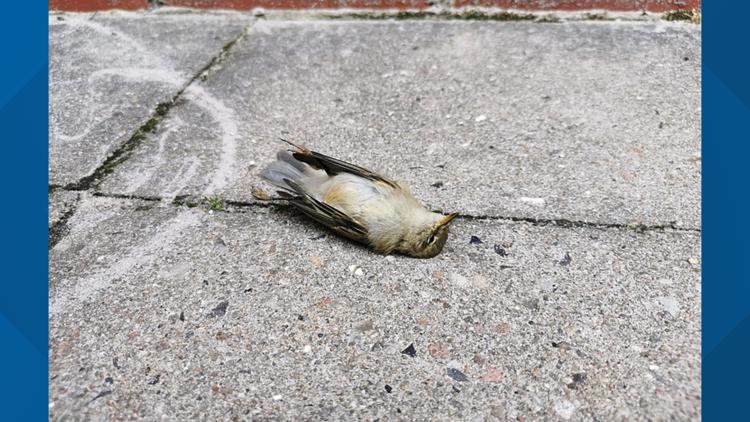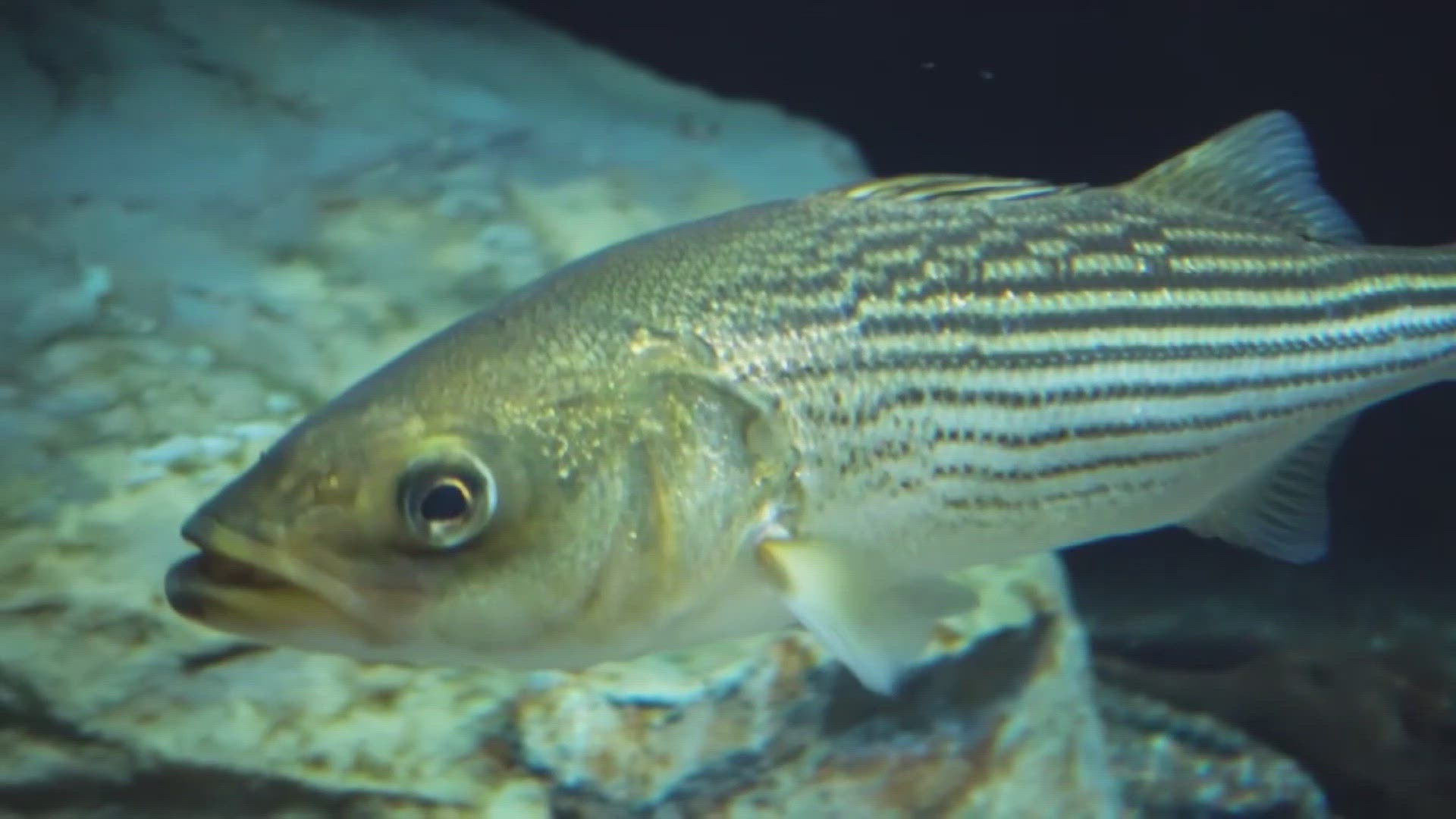WASHINGTON — Here at WUSA9 the environment matters to us, and we know that it matters to you too.
According to the Smithsonian, up to a billion birds die annually in the U.S. from window collisions. Collisions with buildings kill more birds than any other single human factor besides habitat loss and cats, and the problem gets worse during the spring and fall migration.
Some of you spoke up about the problem of birds flying into windows here in Washington D.C., so we wanted to look into the issue further.
On Monday Sept. 2, over 1.3 million birds flew over DC — many of them are migratory songbirds. That's according to BirdCast — a consortium of interdisciplinary researchers across several organizations that track birds' real-time migratory behavior.
Part of the dilemma is that birds tend to migrate at dusk or at night. Our feathered friends mostly migrate overnight to avoid predators, usually taking flight 30 to 45 minutes after sunset, BirdCast says. The greatest number of birds are usually in flight two to three hours after sundown, but they can face collision risks with buildings closer to the morning when they fly lower in search for a place to stop and rest.
According to the U.S. Fish and Wildlife Service (USFWS), this is because birds "can be attracted closer to the reflections in glass that show what could appear to be elements of their natural habitat, such as plants and open sky. Birds can also collide with windows when they are attracted to landscaping outside the window or lights shining out from the interior." USFWS says most birds die from traumatic injury even if they seem fine immediately after a collision.
We spoke with Lights Out DC, an organization dedicated to helping stop this, and Coordinator Lisbeth Fuisz says window collisions are preventable!
“There are things that you can do to mitigate glass and make it less harmful to birds,” said Fuisz. “Including turning out your lights at night and in the early morning during migration.”
“You can also put up blinds in your room or your house. You can cover your windows with a screen. So, there are a lot of ways that people can get involved-- And we're trying to work with building owners, work with homeowners, to get this message out so that they can make a difference,” said Fuisz.
Lights Out DC says volunteers walk a four-mile route in downtown Washington D.C., keeping an eye out for buildings that might be problematic, and they also collect dead or injured birds that have collided with glass.
Everything is logged into a database, and that information is used to convince building owners to adopt light abatement procedures for the sake of migrating birds.
“In D.C., various environmental groups banded together and helped get legislation passed that mandates that new construction of buildings of a certain size, so like large office buildings, have to incorporate bird friendly glass. So, there's really a movement,” said Fuisz.
Interim Coordinator Stephanie Dahlke says watching the legislation take hold validates the effort. “We've got over 10 years of data to clearly show some of them are worse than others, and it's often not the whole building,” said Dahlke.
“So, we don't have to go and put stickers on all of DC, you know, we can really fine tune to treat the most problematic panes of glass,” Dahlke added.
In 2023, the data Lights Out DC collected convinced the DC City Council to unanimously pass a bill requiring bird safe glass on all new and renovated buildings in the District.
Lights out DC says they are looking for volunteers, so if you’re interested helping be sure to visit their website at https://citywildlife.org/programs/lights-out-dc/
More detailed recommendations to make your windows bird friendly can be found here.



